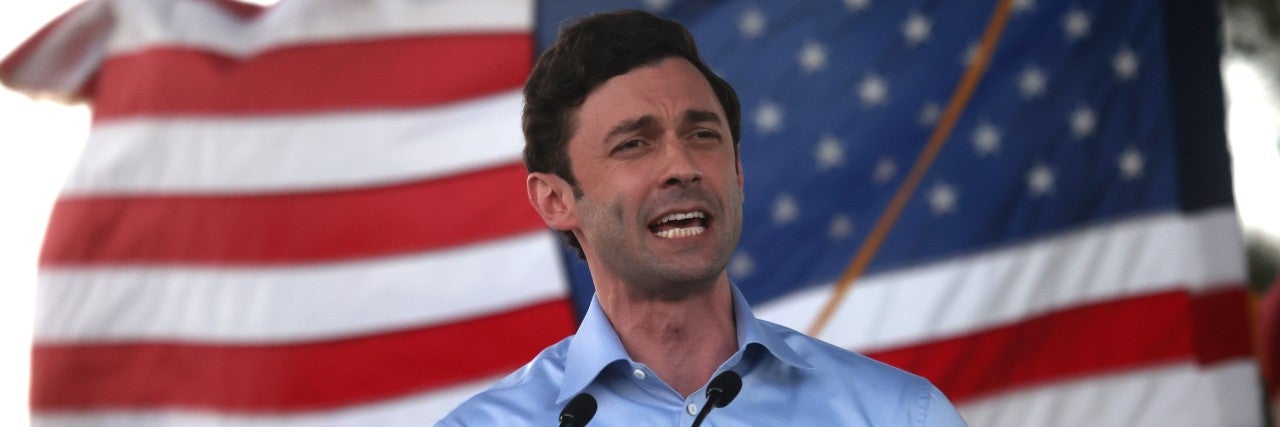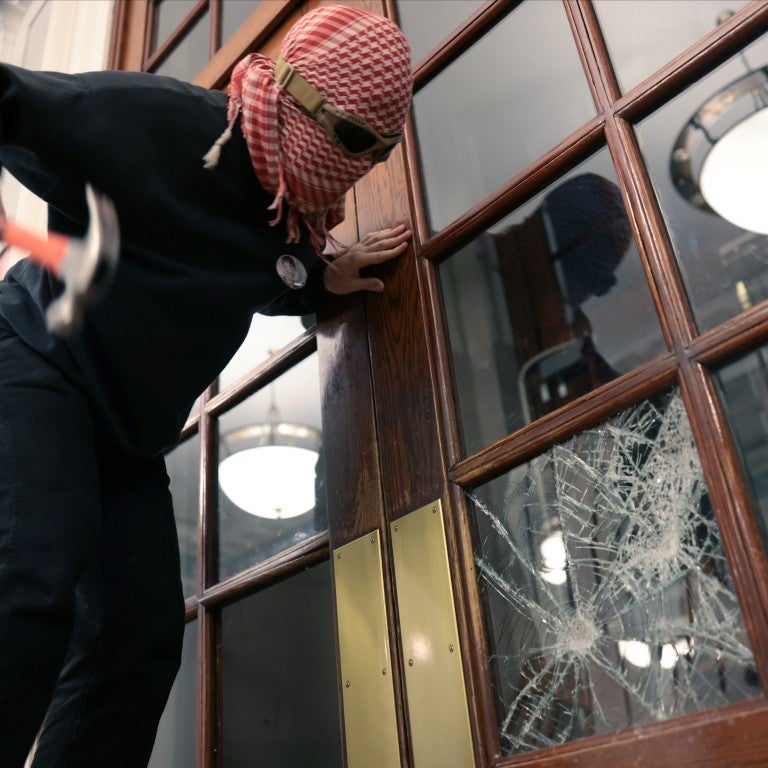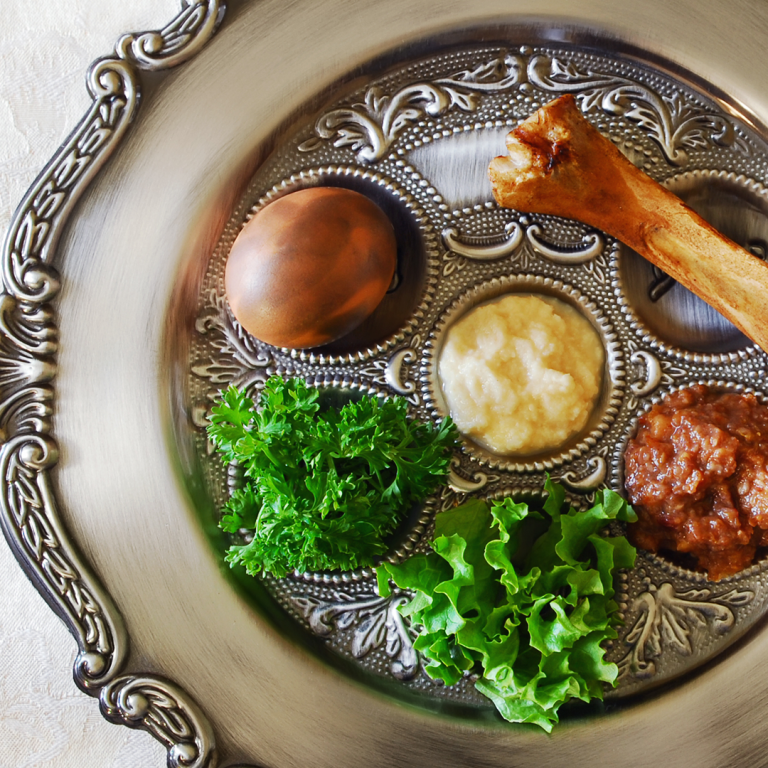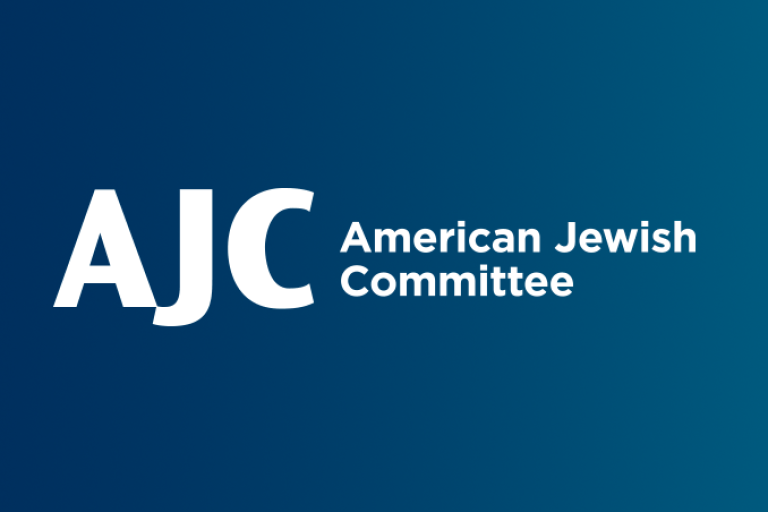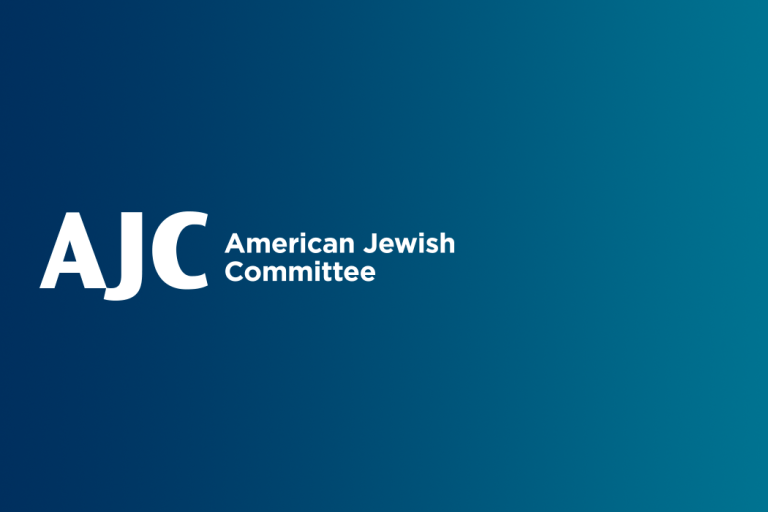May 18, 2023
Senator Jon Ossoff (D-GA), the first millennial Senator and the first Jewish member of the Senate from Georgia, joins us to honor Jewish American Heritage Month. He shares his family's survival against antisemitism and his efforts to combat it today through his work on the Senate Bipartisan Task Force for Combating Antisemitism. He also discusses his connection to Israel and feeling Jewish and proud at a recent Yom HaShoah event in his home state.
*The views and opinions expressed by guests do not necessarily reflect the views or position of AJC.
Episode Lineup:
- (0:40) Jon Ossoff
Show Notes:
Take our quiz:
Test your knowledge of the rich culture and heritage of the Jewish people and their many contributions to our nation! Start now.
Read:
- What is Jewish American Heritage Month?
- Jewish American Heritage Month Resources
- Faces of American Jewry
- Amazing Jewish Americans
Listen:
- 8 of the Best Jewish Podcasts Right Now
- "Busy in Brooklyn" Food Blogger Chanie Apfelbaum Talks Kosher Cuisine and Jewish Heritage
Follow People of the Pod on your favorite podcast app, and learn more at AJC.org/PeopleofthePod
You can reach us at: peopleofthepod@ajc.org
If you’ve enjoyed this episode, please be sure to tell your friends, tag us on social media with #PeopleofthePod, and hop onto Apple Podcasts to rate us and write a review, to help more listeners find us.
Transcript of Interview with Jon Ossoff:
Manya Brachear Pashman:
Jon Ossoff was a documentary filmmaker and investigative journalist before he became a United States senator representing Georgia. He is the youngest member of the Senate elected since 1980. The first millennial in fact. He's also the first Jewish member of the Senate from Georgia. In fact, the first Jewish Senator from the deep south since 1878. Senator Ossoff joins us now in honor of Jewish American Heritage Month. Senator, welcome to People of the Pod.
Jon Ossoff:
Manya, thank you so much for the invitation. It's an honor to be here.
Manya Brachear Pashman:
So, Israel just celebrated its 75th birthday. It's a young country, but it's twice as old as you. You are 36, I believe. How do you relate to that historic milestone, as someone who's Jewish, who’s a father, as a Senator who knows Israel's strategic importance to the United States? How do you relate to Israel?
Jon Ossoff:
Well, I think I should begin with a reflection on how my family's story has influenced me and influenced how I think about US-Israel relations. I was sworn in to the Senate, and in my jacket pocket at that moment, had the ship's manifests, documenting the arrival of my great grandparents, Annie and Israel, at Ellis Island, from Eastern Europe, in 1911 and 1913. And they left Eastern Europe in the early 20th century, as so many European Jews did, fleeing antisemitism. And while many members of my family and ancestors managed to escape, as in so many Jewish families, there were many who did not. And of those who did not, to my knowledge, all but one perished in the Holocaust. And I remember as a very young child, spending time with my uncle Nate, I called him uncle Nate. He had escaped, and hidden in the forests around the camp and the worksite, until he was liberated.
And I remember as a young child sitting with him and tracing with my finger, the numbers tattooed into his arm. And I think so many American Jews have experiences like that one, having grown up among Holocaust survivors. And growing up among survivors, and being keenly aware of the genocide of Jews, the attempt with industrial-scale brutality to extinguish the Jewish people forever, has a profound impact on all Jews, all Jews in the United States, all Jews around the world.
And of course, it has a profound impact on how I view the State of Israel, recognizing that the State of Israel was established 75 years ago as Jews rebuilt in the ashes of the Holocaust, and sought to establish a secure homeland for the Jewish people.
I am now, as many American Jews are, deeply concerned about Israel's future, deeply concerned about the trends and dynamics and risks in the broader Middle East. And as an American policymaker, of course, particularly focused on US national security interests and other interests in the region. So I have worked for the last couple of years, to build strong working relationships, on a foundation of trust with regional leaders in Israel, in neighboring and surrounding countries, and in the Palestinian Authority, so that I can play a constructive role advancing US interests, and working to ensure that Israel can survive as a democracy and a secure homeland for the Jewish people. And also that all people in this region can one day flourish in peace and security and freedom.
Manya Brachear Pashman:
Do you believe that your colleagues share that understanding of the importance of Israel, the importance of Israel to the Jewish people. And as a follow up to that, you know, we deal a lot with combating and fighting antisemitism. How much of today's antisemitism is kind of disguised as anti-Israel criticism, and has to do with a lack of understanding of the role of Israel?
Jon Ossoff:
Look, I think that these things can and sometimes do overlap. And I think we also have to be clear that in our free society, and as we as free citizens discuss the state of the world, we also have to avoid dismissing any critical views of Israeli policy as mere antisemitism, because there are many principled people who have a diversity of views about the Middle East region, who hold those views in good faith, not born of any kind of religious hatred.
You know, as for my colleagues in the Senate, I do believe that there is a growing and strong awareness of the rising tide and threat of antisemitism at this moment here in the United States, and around the world. In Georgia, just recently, there have been multiple incidents of hateful antisemitic literature being littered in the yards and driveways of Jews in different communities across the state. We've seen, of course, a significant increase in hate crimes, violent threats, and acts of violence, targeting Jews.
And I was speaking recently at a Yom Hashoah event at a cemetery in Atlanta. It's an annual event that I attend, the Israeli Consul General typically attends, and local Jewish community leaders. And I heard a baby crying during the ceremony. And when I made my remarks, and as a father, my wife, Alicia, and I have an 18 month old baby daughter at home. I shared with the crowd how to me and I think to all of us how profound it was to hear a baby crying at an event remembering the unfathomable loss of the Holocaust, because that baby's voice is proof that the effort to destroy the Jewish people failed, and that we survived and that we persist.
But that Jewish child is also growing up at a time when antisemitism continues to grow as a threat to Jews in the United States and around the world, which requires us to be vigilant and determined, informed by our people's history. That threats to Jews have not been permanently defeated. As they have throughout history, they rise and rise again and we have to be ever vigilant.
Manya Brachear Pashman:
You have confronted antisemitism in the past, some very classic conspiracy theories. I'm curious how you confront that personally. And what government's role is in combating antisemitism?
Jon Ossoff:
There was the widely covered, widely condemned incident during my Senate campaign. When my opponent’s campaign doctored an image of my face to lengthen my nose, portray me as the sort of classic caricature, antisemitic caricature. And look, of course, as a public figure, some of the hate and ill will and sometimes threats that come my way have within them or are motivated by hatred of Jews and antisemitism.
You know, I think as a public figure Manya, I have had to build the armor, personally necessary to protect myself and my family, to weather threats and insults that come with public life and leadership in the public arena. But for those who have not chosen a life in the public eye, you know, the swastika spray painted on the garage door, the hateful pamphlet dropped in the driveway, the threatening anonymous voicemail. You know, it's more than just upsetting and disturbing. It represents a threat to a family's safety. It represents a threat to children, to life, to property, and it undermines and can destroy the trust that we have, that our communities are open and tolerant, and based upon love and acceptance of one another, regardless of our faith. So it's a deeply worrying and corrosive and threatening dynamic in our society right now.
Manya Brachear Pashman:
So, should Jewish families build a similar armor, similar to what you have developed as a public figure? Or does the government have a role in doing something to combat it?
Jon Ossoff:
Private citizens should not have to weather and endure and be subjected to hatred and harassment and bigotry. And there is a role for leaders in government. I work alongside my colleague, Senator Jackie Rosen of Nevada, on the bipartisan Joint Task Force on Antisemitism to develop solutions within Congress.
But at this moment of increased hatred, and violence, and division along all kinds of lines in our society: religious, racial, ethnic, political, cultural, all of us, leaders and citizens, are called upon to promote and defend and strengthen the loving and trusting and tolerant bonds between neighbors and fellow citizens to make our society more resilient to the fringe, which promotes hatred, and to ensure that the United States lives up to its highest ideals as a place where, regardless of where one came from, or how one worships one can be free and safe and treated with dignity.
Manya Brachear Pashman:
In fact, you called for a federal task force, an inter-agency Task Force to address Antisemitism back in December. That task force has become a reality. And I'm curious if you feel like that task force should be working toward more of a civil society response or actual government agencies, policies to really curb the spread of antisemitism? Or maybe it's a combination of both.
Jon Ossoff:
Look, I think that there is clearly a role for leaders in government and elected officials to promote and strengthen policies and ideals that defend the public against hate crimes, against violence, against harassment. And this also has to be a broader effort shared by leaders in all fields, business leaders, faith leaders, civic leaders, community leaders, and every ordinary citizen.
The reality is that despite how hateful and divided the public discourse can seem, and is, and despite the alarming and dangerous rise in antisemitism, and various forms of hatred, most people are deeply good. Most people are kind. Most people cherish the American ideals of equal justice, freedom of religion, and the basic idea that this is a place where people from all kinds of family backgrounds coexist and live together as Americans not on the basis of one religious creed or racial identity or national origin, but on the basis of commitment to our country's fundamental values. And I think we all have a role to play in defending and lifting up that vision of our society at a time when there is so much hate in the political and cultural and social discussion.
Manya Brachear Pashman:
You interned in high school for the late Congressman John Lewis of blessed memory, a longtime dear friend of AJC. What is the direction of the relationship between black and Jewish communities in America? Where are the points of tension, the points of promising engagement? Where do we go from here?
Jon Ossoff:
You know, sort of an extraordinary 24 hours in Georgia’s history and US History: January 5, to January 6, of 2021. On January 5, the state of Georgia, and you know, our complex history, as both the cradle of the Civil Rights Movement and the heart of the Old Confederacy, elected to the US Senate, the 33 year old Jewish son of an immigrant, and a black pastor, who holds the same pulpit that Dr. King did at Ebenezer Baptist Church. The first black senator in Georgia's history, the first Jewish Senator in Georgia's history, the first Jew elected to the Senate from the deep south since 1878.
And that is a powerful testament to what I was describing earlier that, you know, despite the level of hatred and division that we see in our public life, this country has come so far in terms of tolerance. But it wasn't 12 hours later, that the US Capitol was being ransacked by a hateful and violent mob. In some cases, sporting neo-Nazi and Confederate symbols, who tried to use violence, to prevent the peaceful transfer of power in our democracy, a core process in our constitutional system.
And so while what happened on January 5 demonstrated how far we have come, what happened the next day demonstrated the reality of the very real and present threat to those values. I mentioned that I was sworn in with, in my jacket pocket, the ship's manifests documenting my great grandparents' arrivals at Ellis Island. 2
I was also sworn in on the Tanach that had belonged to Rabbi Jacob Rothschild, who had been the longtime rabbi at the temple, the Atlanta synagogue that I attended growing up, and where I was Bar Mitzvahed. And the temple in 1958 was bombed by the Klan in retaliation for Rabbi Rothschild’s alliance with Dr. King and his denunciation of segregation. And I was sworn in on that Tanach because, of course of the special role that that synagogue had played in my upbringing, but also because of the values that it represented as a possession of Rabbi Rothschild’s at the moment when Senator Warnock and I had been elected.
And since Congressman Lewis had been a key mentor in my life, and I, so well recall that one of the first things he ever explained to me in great detail, when we sat down together, was the historic alliance between blacks and Jews in the civil rights movement, how he had marched alongside rabbis and Jews who had come to the south in the Freedom Summer to demand civil rights and voting rights. And, you know, that's a legacy of solidarity between two peoples who have had very different, but both long-term struggles against hatred, genocide. And I think it's a bond that needs to be nourished and strengthened.
Manya Brachear Pashman:
Do you see obstacles in the way of that?
Jon Ossoff:
Look in Georgia, the Jewish and black communities love one another, work closely together. And there is always room for growth. And so Manya in closing, I have to run in vote on the floor of the Senate in just a moment. I just want to, if I might, take this opportunity to reiterate what I said earlier, but at a moment like this, when there is hatred and violence, threatening and in the air, and on the ground, in reality. And when Jewish families and many American families of various minority backgrounds feel threatened by the rise in hate crimes, and religious, racial, ethnic, and cultural hatred, it's our shared obligation to make real a country that lives up to America's highest ideals.
And I believe that we can, and we will, by pulling together and believing in that and working together to defend what's best about the United States. I really appreciate the opportunity to spend some time with you. And thank you for the work you do, getting information out there and connecting Jews across the country through this podcast.
Manya Brachear Pashman:
Wonderful. Thank you so much, Senator. Thank you so much for joining us.
Jon Ossoff:
Thank you, take care.
